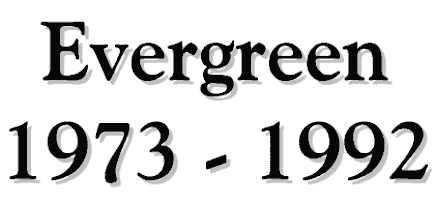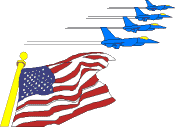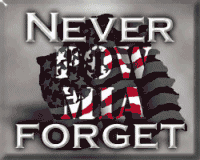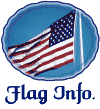![]()

 By mid-1973, there were approximately 29 million veterans in the United States.
Together with their families, these one-time members of the Army, Navy, Marines, Air
Force, and Coast Guard accounted for about one hundred million citizens, or one-half the
population of the United States. These veterans, of course, were not all members of the
Veterans of Foreign Wars, or even veterans of foreign wars themselves. But that made
little difference to the 1.7 million veterans who did belong to the VFW. As charged by its
Congressional Charter, for nearly three-quarters of a century the VFW had fought for the
rights of all veterans, whether they were members or not. It had no intention of changing
its policy now. By mid-1973, there were approximately 29 million veterans in the United States.
Together with their families, these one-time members of the Army, Navy, Marines, Air
Force, and Coast Guard accounted for about one hundred million citizens, or one-half the
population of the United States. These veterans, of course, were not all members of the
Veterans of Foreign Wars, or even veterans of foreign wars themselves. But that made
little difference to the 1.7 million veterans who did belong to the VFW. As charged by its
Congressional Charter, for nearly three-quarters of a century the VFW had fought for the
rights of all veterans, whether they were members or not. It had no intention of changing
its policy now.As in years past, the VFW would conduct its battles on two fronts. Following the mandate of its farsighted founders, it would continue to fight first of all for our nation's veterans. The struggle for increases in pensions, job rights, educational benefits, and improved medical care for veterans would continue unabated. The VFW would also wage war in service to our nation. Once again, it would turn its attention to community projects, Americanism, and youth programs, as well as to Communism and other threats to the country's defense. In September of 1974, President Ford issued a Presidential Clemency Order allowing all Vietnam-era draft dodgers who had gone to Canada to freely return to the United States. They would initially be given an undesirable discharge. But upon completion of a period of alternative service in VA hospitals, this discharge could be upgraded to a clemency discharge. They would not be eligible for the G.I. Bill or other veterans' entitlements. Still, the VFW was adamantly opposed to both the Clemency Order and the alternate service in VA hospitals. Commander-in-Chief Stang wrote to VA Administrator Roudebush complaining that it was ridiculous to give these draft dodgers and deserters jobs in VA facilities when thousands of Vietnam veterans were unemployed. In the end, few, if any, draft dodgers performed alternate service in VA hospitals.
Amidst all the Bicentennial festivities, the VFW paused to give serious concern to world events that could threaten America's two centuries of freedom. The spread of communism in South America, in particular, became an important issue. To get a firsthand look at the situation to the south, Commander-in-Chief Walker embarked on a tour. In Chile, he discussed his concerns about Communism with General Augusto Pinochet, Chile's ruler. Pinochet assured him of his strong opposition to Communism. A Senate committee was formed to pare down the number of standing committees in the Senate by 50 percent. This committee, chaired by Illinois Senator Adlai Stevenson, had targeted the Veterans Affairs Committee for dismantling. This was a committee that the VFW had labored for years to get and was not about to relinquish without a fight. Fortunately, some senators were opposed to dismantling the Veterans Affairs Committee. Strom Thurmond of South Carolina, for instance, stated that the committee was authorized as a separate committee, and advised a hands-off policy. The VFW moved quickly to consolidate and build upon this support. While other veteran's organizations paid little if any attention to the proposed dissolution, VFW Past Commanders-in-Chief, Council Members, and just plain members traveled to Washington to urge senators to retain the committee. In addition, VFW and Ladies Auxiliary members made thousands of phone calls to senators' offices, and Commander Smith brought the Commander or Quartermaster from each state to lobby their senators personally. (This was the first time the VFW had ever brought its members to Washington, D.C. to lobby.) Thanks to these efforts, the number of senators in favor of keeping the committee doubled. Other gains recorded in Smith's year included a 6 percent increase in veterans' pensions and compensation and an increase in the VA budget. A new veteran's employment program was also begun. Called "HIRE" (Help through Industry Retraining and Employment), this program trained or secured employment for more than 100,000 veterans. In addition, the Director of the Veteran's Employment Service received a new title and loftier position: Special Assistant to the Secretary of Labor. (This position is now called Assistant Secretary of Labor for Veterans Employment and Training Services). Despite the VFW's many victories during Smith's year, it failed completely to block an unprecedented move by new elected President Carter. On the first day of his administration, President Carter issued a "blanket" pardon to everyone who had refused to serve in the Vietnam War. In March 1976, "Bulldog" expressed his - and the VFW's - outrage at Carter's pardon. "It is an insult to every man who has ever fought and died for his country and to all the men who have served honorably in our nation's Armed Forces." He went on to explain that the reason the VFW opposed any hasty, mass upgrading of less-than-honorable discharges was because "the speeding up of this process prevents close scrutiny and study of each case with the final result being the upgrading of all less-than-honorable discharges" The VFW's objections fell on deaf ears. In 1983, following a resolution passed by the 83rd National Convention, the VFW concluded a new agreement of cooperation with the American Red Cross. This statement of understanding replaced a Cooperative Disaster Plan adopted by the 1950 National Convention in Chicago. The statement allows the Red Cross to use VFW facilities for feeding and shelter during times of disaster and offers the voluntary assistance of VFW and Ladies Auxiliary members. The year 1983 also saw the end of a year-long challenge to the VFW's tax-exempt status. The Internal Revenue Service (IRS) had questioned whether an organization that engaged in lobbying could maintain its tax-exempt status. On May 23, the U.S. Supreme Court ruled that an organization may lobby Congress without losing its tax-exempt status. While the VFW's concerns about Communism in Central America were growing, the organization was able to relax its vigilance somewhat in Europe. One November 1, 1987, the Memorandum of Understanding regarding the intermediate-range nuclear forces treaty between the U.S. and the U.S.S.R. was signed. At the urging of Commander Stock and others, the Senate approved the treaty. The VFW supported this treaty because it contained provisions for verifying compliance as called for by VFW resolutions. In summing up the accomplishments of his year at the 89th National Convention in Chicago, Commander Stock singled out one perpetual problem area still unresolved: the plight of the POW/MIAs in Southeast Asia. He pointed out that much work still needed to be done, "even though in dribs and drabs the Vietnamese are returning home sets of remains of American servicemen killed there during the war. You may be certain that every influential personage in Washington has been thoroughly advised on our position on the POW/MIA issue, and of course, I am certain that my successor also will continue the campaign for a resolution of this most heart-rending problem." The man preordained to succeed Stock was a Vietnam veteran named Larry Rivers. Upon his election, Rivers told the 1988 convention, "Our theme for this, our 90th year, is a simple one: ‘We Remember.' So beautiful in its simplicity, yet so powerful in the message it conveys. As we celebrate ninety years of faithful service to America and her veterans, we do indeed remember. We remember the many challenges we have faced, the many obstacles we have overcome, and the impressive list of accomplishments that we, together, have compiled" And it went without saying that the VFW remembered the POW/MIAs.
On December 15, 1989, Panama's notorious drug-dealing dictator, Manual Noriega, declared that a state of war existed between Panama and the United States. On December 20, 1989, the U.S. military launched Operation Just Cause. From the land, sea, and air, 27,000 U.S. soldiers, marines, and air crewman struck Panama. Shortly after Operation Just Cause ended, it was announced that all armed forces personnel who had participated in the invasion would be awarded the Armed Forced Expeditionary Medal. This medal would, of course, entitle these service men and women to join the VFW. And once again, the wisdom of the founders' "evergreen" policy was proven. As the organization entered its 91st year, it could claim more active posts (10,399) than ever before in his history. This included fifty-five posts located in a dozen countries: Germany, France, Great Britain, Korea, Taiwan, the Philippines, Guam, Kwajalein (a U.S. territory), Panama, and Japan, including Okinawa. There were also posts in the Virgin Islands and Puerto Rico, as well as four posts in Mexico under the jurisdiction of the Department of Texas. And for the thirty-fifth consecutive year, total membership of the Veterans of Foreign Wars grew. This was as it should be, according to Commander-in-Chief Hogan: "Influence, for better or worse, it tied directly to membership figures." |
 As a
backdrop to all the other activities of Stang's term were the projects sponsored by posts,
districts and departments across the country in honor of the nation's upcoming 200th
birthday. These projects varied widely from post to post - and there were more than 10,000
posts - but each had an underlying patriotic theme. Many posts made costumes for children
to wear in parades or distributed posters and coloring books to help them learn about
America's heritage. Adults, too, entered costumed marching units and patriotic floats in
parades. Other popular projects included writing articles or sponsoring radio and TV spots
with a patriotic theme.
As a
backdrop to all the other activities of Stang's term were the projects sponsored by posts,
districts and departments across the country in honor of the nation's upcoming 200th
birthday. These projects varied widely from post to post - and there were more than 10,000
posts - but each had an underlying patriotic theme. Many posts made costumes for children
to wear in parades or distributed posters and coloring books to help them learn about
America's heritage. Adults, too, entered costumed marching units and patriotic floats in
parades. Other popular projects included writing articles or sponsoring radio and TV spots
with a patriotic theme. To keep
the POW/MIA issue in the forefront of everyone's consciousness, the VFW worked to carry
out a number of resolutions previously passed by the organization. Resolution 401 of this
89th National Convention demanded that the issue remain one of the government's highest
priorities; No. 402, that the government vigorously pursue negotiations with Laos to allow
us to investigate aircraft crash sites for remains and to follow up on reported sightings
of live POWs; No. 421, that Congressional appropriations to international lending agencies
be contingent on those countries' cooperation in the search for U.S. POW/MIAs of past
wars; No. 438, that Congress pass a law requiring the POW/MIA flag to be flown on every
government installation in the world; No's. 444 and 445, that the president appoint a
permanent POW/MIA affairs advisor on the embassy staff in Vientiane, and that maximum
economic and diplomatic pressures be brought on the North Korean government to account for
the 8,000 U.S. servicemen still missing from that war.
To keep
the POW/MIA issue in the forefront of everyone's consciousness, the VFW worked to carry
out a number of resolutions previously passed by the organization. Resolution 401 of this
89th National Convention demanded that the issue remain one of the government's highest
priorities; No. 402, that the government vigorously pursue negotiations with Laos to allow
us to investigate aircraft crash sites for remains and to follow up on reported sightings
of live POWs; No. 421, that Congressional appropriations to international lending agencies
be contingent on those countries' cooperation in the search for U.S. POW/MIAs of past
wars; No. 438, that Congress pass a law requiring the POW/MIA flag to be flown on every
government installation in the world; No's. 444 and 445, that the president appoint a
permanent POW/MIA affairs advisor on the embassy staff in Vientiane, and that maximum
economic and diplomatic pressures be brought on the North Korean government to account for
the 8,000 U.S. servicemen still missing from that war.








 E-Mail
E-Mail